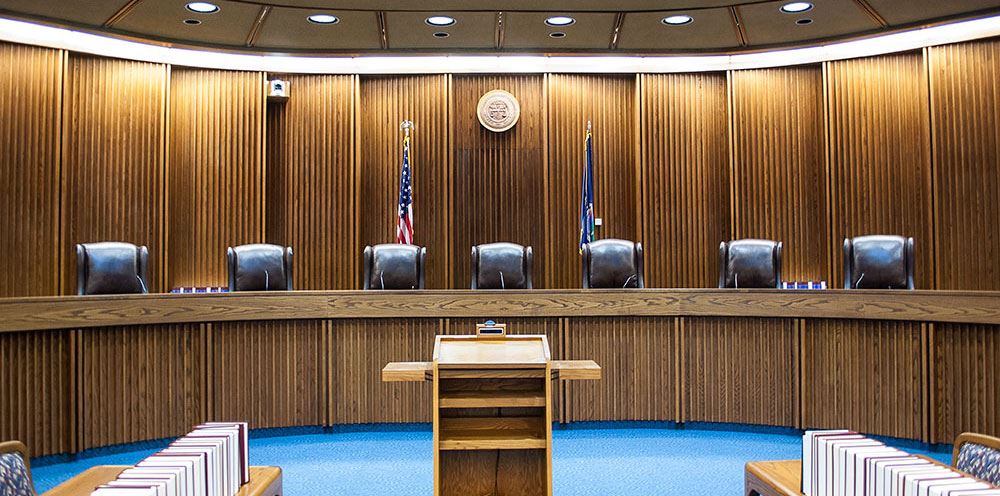What exactly is the search authority of a Kansas law enforcement officer following a lawful arrest? The issue is generally divided into an examination of the three distinct “areas” of space that exist at the location of every arrest: 1) the area made up of the arrestee’s person; 2) the area away from the arrestee’s person but still within the arrestee’s immediate control; and, 3) the area outside and away from #1 and #2.
#1. Arrestee’s Person: By virtue of a lawful arrest, an arrestee has a reduced expectation of privacy in his or her person, their clothing, and in any containers within their clothing. Courts have for a century held that following a lawful arrest the search “of the person” is reasonable under the Fourth Amendment because it protects the arresting officer from harm by locating and isolating weapons, and by preventing the destruction of evidence. Thus, officers have blanket constitutional authority at every lawful arrest to search the person of all arrestees.
#2. Arrestee’s Immediate Control: However, when the search area moves away from the arrestee’s person, a lawful arrest standing alone may not justify searching anything else. At many arrests, a container like a backpack or a purse was being carried by the arrestee, or is found nearby. The first question is: following the arrest, was the container in question still located within “the grabbing area” of the arrestee? Courts will look to the number and relative locations of the officer(s) and the suspect(s), the time of day, and the general dangerousness of the particular situation. If the arrestee has been handcuffed and/or removed from the container’s location (or vice versa), the search-incident-to-arrest authority to look into the closed container has probably evaporated. Should an arrestee for some reason not have been restrained, and is still within the grab area, and the officer can later articulate that it was reasonable under the circumstances to believe that the closed container had in it a weapon or destroyable evidence, then the search-incident-to-arrest authority would allow a search of the container. As a practical matter, at a typical arrest scene, and contrary to popular belief: there will be few instances where search-incident-to-arrest authority can be used to search a closed container such as a purse or backpack that has been separated from an arrestee.
#3. Other Areas Surrounding Arrest Scene: There is no recognized search-incident-to-arrest search authority for those areas beyond an arrestee’s person or the grab/immediate control area, such as other rooms of a house, or outbuildings near a public-arrest scene.
But, should there be no authority arising from the arrest itself, sometimes an inventory search of a closed container taken into custody at an arrest scene may work. Inventory searches are one “well-defined” exception to the search warrant requirement. An inventory search is the search of property lawfully seized and detained, in order to ensure that it is harmless, to secure valuable items, and to protect against false claims of loss or damage.
The justification for an inventory search does not rest upon probable cause or the need to search for evidence of a crime. Rather, a warrantless inventory search is only reasonable under the Fourth Amendment because it is an administrative action that attempts to protect both government agencies from liability and the property of citizens entangled in the justice system.
So, for an inventory search to be lawful, first a law enforcement agency must have lawful custody of the property to be inventoried. Officers may impound the personal effects of an arrestee if such impoundment was reasonable under the circumstances. A home arrest may be viewed differently than a public place arrest. For example, at a house it would be more reasonable to allow the arrestee to leave their backpack at their home; but, an arrest in a grocery store would be different. It would be unreasonable to leave the arrestee’s backpack in the frozen food isle “or expect someone at the store to take possession . . . not knowing what might be in it.”
The second requirement of a lawful inventory search is for the agency to have in place a standardized inventory policy. The policy need not be written, but officers will have to testify in detail to what the policy is and how it operates. The more discretion allowed by a policy, the more likely the policy will be held unreasonable and therefore unlawful. Inventory searches are to be narrow in application, and each inventory search handled in the same manner. Inventory searches are not to be used to further a criminal investigation.
Written inventory policies are the best practice. When an inventory search is contested at a suppression hearing, the prosecutor will be required to prove by a preponderance of the evidence that the searching law enforcement agency had a recognizable, standardized policy. Written policies are much easier to prove than unwritten policies. Constitutionally, if an agency has no inventory search policy, then its officers have no inventory search authority. It is as simple as that.
Should during a lawful inventory search evidence of a crime be found, then best practices would highly recommend that the officer stop the inventory search and immediately apply for a search warrant because the search has suddenly transformed from a routine administrative action into a new criminal investigation.
That all said, there may well be other legal reasons to search a particular container or area at an arrest scene such as probable cause/exigent circumstances, consent, plain view or protective sweep. Unfortunately, discussion of those alternative and overlapping authorities must await another day.
For further research and understanding: Chimel v. California, 395 U.S. 752 (1969); United States v. Robinson, 414 U.S. 218 (1973); State v. Copridge, 260 Kan. 19 (1996); State v. Baker, 306 Kan. 585 (2017); State v. Ritchey, 56 Kan.App.2d 530 (2018); United States v. Knapp, 917 F.3d 1161 (2019).


